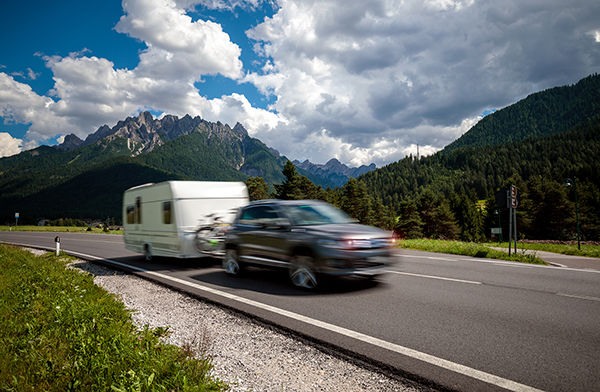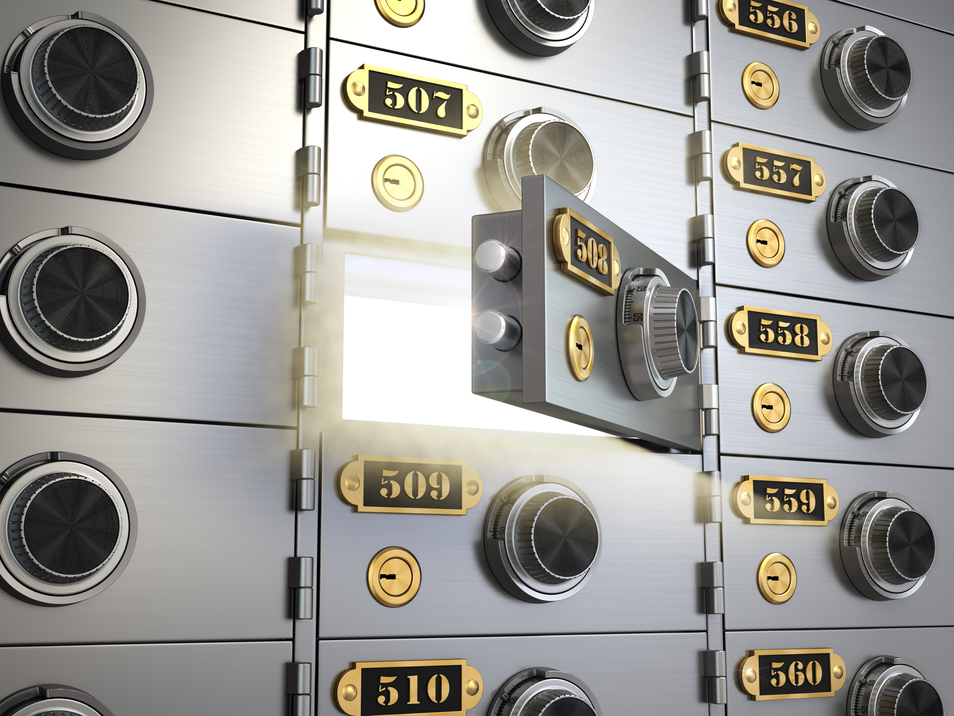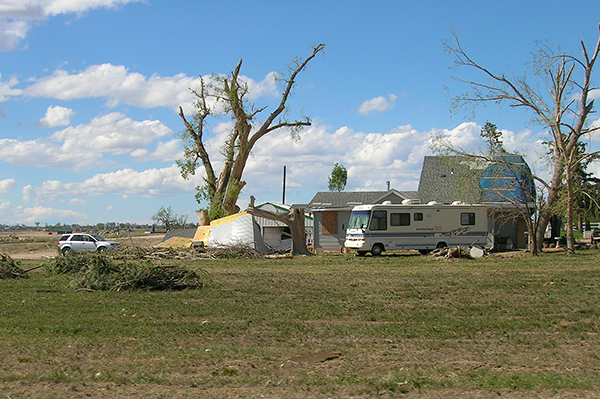Wildfire. Earthquake. Volcanic eruption. Tornado. Hurricane. Flood. Hazardous waste leak. Toxic substance explosion. Terrorist attack.
No one wants to think about disasters when they get on the road, especially if their trip is a long-awaited, much-anticipated vacation. But the fact of the matter is, when you’re living in an RV—be it for a limited vacation, a lengthy one, or even as a full time venture—it becomes your home for however long you’re in it.
This means that, just like any sticks-and-bricks dwelling resident, we need to be prepared for the unforeseen. In fact, it’s even more important for RVers to be prepared, because those of us who boondock are so often way out in the middle of nowhere. This makes it difficult to go for help if we need it, and also generally means we won’t necessarily be able to count on having friends nearby. In other words, we’re often largely on our own, so it’s best to be prepared for any eventuality.
Given the recent nasty weather such as hurricanes and flooding, it’s an especially good time to consider being prepared for a disaster. We all know we should be prepared with food, clothing, water, etc., (we’ll talk more about that in another post), and we’re told to have copies of important papers, but what, exactly, are those important documents?

Important Documents to Keep With You
Now, as an RVer of the temporary sort, chances are you won’t need everything you’d need if you were back home in your sticks-and-bricks. But if you’re a longterm or full-time RVer, there’s a good chance you keep copies of most of your really important papers with you. Of course, no list I offer here will fit everyone’s situation, but it may remind you of what all you do need to at least consider.
Here’s a list of documents you may need copies of:
Contact information
- Banks and other financial institutions
- Employers
- Insurance agents
- Power, light, gas and other utility companies (for back home, if your house is involved while you’re away)
- Relatives/next of kin, close friends and other emergency contacts
Identity
- Social Security card
- Driver’s license and/or Real ID card
- Passport and/or VISA
Personal
- Photos
- Memorabilia
Human Health Records
- Immunizations
- Surgery and treatment procedures
- Doctor contact information
- List of all current medications
- Advanced Medical Care Directive (living will)
- Healthcare proxy information (Healthcare Power of Attorney, not to be confused with legal power of attorney)
Pet Health Records
- Vaccinations
- Prescriptions
- Microchip Registration
Insurance
- life
- health
- auto
- home/renters (if you have a sticks & bricks)
- RV
- umbrella policies
Legal
- Property titles and deeds
- Registrations
- Estate planning documents (including Legal Power of Attorney)
- Birth, adoption, marriage and death certificates
- Other notarized papers or documents;
- Any current court papers
Financial
- Income tax returns
- Bank and credit card statements
- Mortgage and loan information
- Investment and social security records

But who carries all this stuff?
Remember, when you’re traveling, you need to think about getting caught in a disaster zone on the road, as well as the possibility of having something happen back home in your house or apartment.
You may be saying to yourself right now, “Well, I have all those documents in my bank’s safe deposit box. They’re safer there.” Well, yes. As long as your bank isn’t in the disaster zone. I know my bank back home is actually located in the floodplain of a river that has been known to produce catastrophic flood crests. You can bet I keep my eye on that river.
But what about when I’m on the road? Not only can’t I keep an eye on the river, I also don’t know how or when I could get to that location if it—or I and my rig—are caught in a disaster.
Redundancy Is Your Friend.
As someone who spent 13 years in volunteer service with our local emergency management agency, I’m all too familiar with what can happen just when you think it can’t. I tend to be a little on the OCD end of prepared. Anything that exists in hardcopy form in my safe deposit box also exists in either PDF or JPG electronic files, in at least one if not three different, secure places in the cloud. And on at least one thumb drive.
If that seems a little overkill, keep in mind that Murphy’s law is never as pervasive as when you have no control over your situation. Just as you can’t access fuel from a gas station pump that requires electricity to run, you can’t access the Internet in an area whose cell towers are either down or whose generators are offline. So that thumb drive may end up being the only copy of your needed documents.
And what if you can’t access a printer to run off some copies? Then let’s hope you have those documents in encrypted files right on your smartphone…and that you have a way to keep it charged enough to be able to display them on its screen.

What to do if the worst happens
No matter how prepared you think you are for a disaster, the situation may still get crazy and cause you to lose your records. Hopefully, you do have redundancy, but if you’re on the road and experience a fire or some other similar tragedy, one of the first things you may have to do is reconstruct all or part of your financial records. While this would be a time-consuming challenge, it is possible.
But where would you even begin? It may seem hard to believe, but in such a case, the IRS is a good starting place. Or in this case, your tax preparer or online tax preparation account. A copy of your tax return can supply you with a great deal of data on bank and investment accounts, employment details, or property you own.
You may also need to contact
- the financial institutions through whom you have loans
- the appropriate agencies to get copies of marriage or birth certificates, social security cards, and driver’s licenses
The best part is that because few legal documents exist in a vacuum, finding one can lead to another.
Truly, though, the best way to avoid having to do all this is to keep the originals in a physical safe deposit box in a secure location. Keep one key in a secure place in your rig or tow vehicle or on your person, and the other with a trusted relative or friend. It may take you some time to get back to that place, but at least you’ll feel confident they’ll be waiting safely for you when you return.
Better yet, keep a fireproof, waterproof safe, box or document bag in your rig or tow vehicle. Make sure it’s known and accessible to all trusted occupants, so they can grab it at a moment’s notice if needed.
Hope this is helpful. In Part 2, we’ll talk about basic supplies to keep with you in standard storage. Part 3 will detail what you need to have ready in a Go Bag or Bug Out Bag. No one can be prepared for everything, but everyone can be prepared for most things.
Full disclosure: I am an Amazon Associate, so part of your purchase through some of the links or portals on this website will help support this site, at no extra charge to you. Thanks for helping me to help you and others by supporting my ability to provide valuable information on how to live more joyfully, efficiently and safely on the road.


Recent Comments